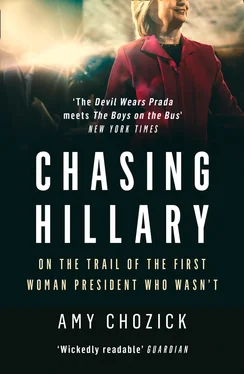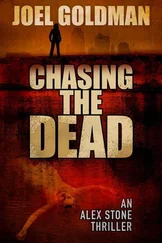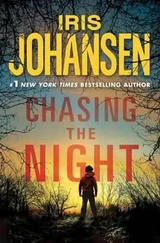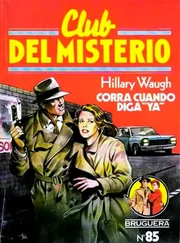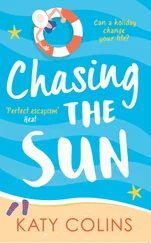I also left a delegation of Brazilian diplomats waiting in the lobby so I could finish an interview. I was on deadline and forgot to order coffee and Danish for a meeting with top editors and a dozen Alibaba executives visiting from Hangzhou. I had about 200,000 rupees worth of expenses piled up that I needed to process. I’d screwed up the conversion and thought this was about US$150, but turned out to be more like US$3,000.
I killed it at being a bad assistant.
Bureau chiefs who worked for Bussey used to warn me that I should always check for my wallet when I left his office. I didn’t know what they meant until he offered me a job as a foreign correspondent based in Tokyo. After our talk, I felt like a rock star, the euphoria lasting about four minutes until the practicalities of this position set in. I didn’t speak Japanese. The little I knew about Japan I’d picked up from a couple Murakami novels and a five-day vacation in Tokyo to visit my friend Aika, a man-eating deejay whom I’d backpacked around South America with in college. I could hardly afford to live in New York on my salary, let alone Tokyo.
But I was cheap. The Journal gave me a salary raise to $40,000 a year, and called it “a suitcase relocation.” I had no family or house full of belongings to relocate. I could pick up in the same red suitcase I’d used when I first moved to New York.
My mom cried when I told her. “No, no, I’m really happy for you,” she said through sobbing so loud I had to hold the phone away from my ear. “But JAPAN?!”
A couple of weeks before my big move, Ellen Byron, who covered retail at the Journal , urged me to go out with her on St. Patrick’s Day.
“C’mon, you’ll meet an Irish guy,” she said.
She knew that my fling with an Iraq correspondent who called me habibti and had a fiancée in Washington had imploded. I don’t know if I even liked him that much, but I’d been so impressed with his career and his dispatches from war zones that I became infatuated. I confided this to one of my bosses, a page-one editor who shook her head of short gray curls. “Amy,” she said. “You can’t fuck the copy.”
I agreed to go for one drink, as long as I didn’t have to wear green or talk to anyone wearing a KISS ME, I’M IRISH T-shirt. There in the Pig ’N’ Whistle, the type of generic Times Square pub I would never normally go to, I saw Bobby. He was brooding against the bar, a trio of blondes forming a half circle around him. He wore a khaki trench coat and had the gentlest hazel eyes framed by sad, expressive lines. With a head of thick black hair, he stood a good foot taller than the blondes. He drank a freshly poured pint of Guinness, licking his upper lip to remove the frothy white mustache that formed after each sip.
I tugged at Ellen’s arm, subtly pointed his way, and said, “See that guy right there? He’s my new Irish boyfriend.” He was a friend of a friend, Ellen said and introduced us. Bobby told me he was from a town called Trim, “about forty-five minutes outside Dublin.”
“Isn’t the whole country forty-five minutes outside Dublin?” God, I was awful at this.
But he seemed amused. We all left the bar to see a U2 cover band called Unforgettable Fire. Bobby bet me five dollars that the final song would be “Where the Streets Have No Name.” I agreed, not knowing that he’d already looked up the set list.
When the concert ended and everyone spilled out onto the sidewalk, I handed Bobby a five-dollar bill. He wrapped my navy peacoat around my shoulders and flagged me a taxi. He was drunk and his upper lip quivered. We hugged goodbye. I’d just met him, yet I had the strangest feeling of my feet elevating off the sidewalk. Or maybe it was the sidewalk that had sunk beneath us. Either way, I looked up at him, disoriented, feeling punched in the gut, that place where the heart is.
“CHOZICK, BUSSEY,” THE voice said before I could say hello. He always ran the words together into one Slavic-Norman surname. Chozickbussey . “How’d you like to go to Iowa to cover Hillary Clinton?”
It was 2007 and Rupert Murdoch had just paid $5 billion for the Journal ’s parent company, Dow Jones. Management, unsure what the takeover would mean for the paper’s political coverage, needed to install a loyal Journal lifer as Washington bureau chief. And there was no one more loyal than Bussey. Within days he’d left the Journal ’s Hong Kong bureau overlooking Victoria Harbour, to move to a dreary office building off K Street. There were no niceties with Bussey. No explanation of what the job would entail or what I’d be paid. (The same salary I’d made when I left Japan, $43,000 a year.)
I’d only moved back to New York from Tokyo a couple of weeks earlier. A squishy brown Kapibara-san charm, a plush version of the world’s largest rodent, still hung from my cell phone—one of my many accessories that seemed appropriate for a twenty-eight-year-old foreign correspondent in Tokyo but that I should’ve retired to a landfill when I got back to the States.
Bobby and I had done long distance for nearly two years. We’d lose entire days (or nights, depending on who was in which time zone) talking via a scratchy Skype connection. I’d stay in the Journal ’s bureau late enough to call and wake him up for work each morning, and he’d do the same when the sun set in New York. I had a Miffy calendar on my desk and would mark off the floppy-bunny-eared days until his next visit to Japan or my next trip to the States.
I hadn’t intended to do long distance with the Irish guy I’d picked up in a bar on St. Patrick’s Day weeks before my scheduled “suitcase relocation” to Japan. I also had a rule about not dating guys who worked in finance, but Bobby was more math geek than Wall Street wolf. We shared the same gypsy spirit and even when we lay in bed my last night in New York and I confided how terrified I was to move to Tokyo—to leave everything familiar—Bobby only held me tighter, told me that I had to do it and that he’d come visit.
We fell in love in Japan. Without Bobby, Tokyo was soul-crushingly lonely. With him, we laughed ourselves silly walking through Yoyogi Park. We gawked at the girls in their Bo Peep dresses and the grown men swing dancing, their hair in exaggerated slicked-back pompadours. We practically bankrupted our favorite all-you-can-eat shabu-shabu joint in Shibuya and soaked in Japanese hot springs so long our skin shriveled, Bobby’s cotton yukata hitting knee length on his sinewy six-foot-one frame. “I think we should shack up when you get back to New York,” he said one night.
On his last visit to Japan, I watched him descend the elevator at Narita airport, in the ratty sweater that he’d had since his University College Dublin days. I pressed my hand against the glass partition trying to touch him and watching him disappear into the foreigners’ immigration line. I turned to walk back to the Narita Express, as I always did, but instead collapsed crying outside the duty-free mall. This led to two police officers asking if I was okay. (“ Genki desu ka? ”) The Japanese don’t do public displays of emotion, especially not that close to the Louis Vuitton. I had to get back to New York.
Six weeks later, Bobby moved his meager belongings into the yellow-walled, rent-stabilized East Village apartment that I’d sublet while I was in Japan. The apartment overlooked a courtyard and a Hare Krishna temple with its cloud of patchouli that made our hallway smell like a hippie’s armpit. Randy Jones, the cowboy from the Village People, lived upstairs and transformed the hot tar of the rooftop into an illegal garden with vines of plump tomatoes climbing up a cinder-block canopy. We were finally nesting.
Читать дальше
